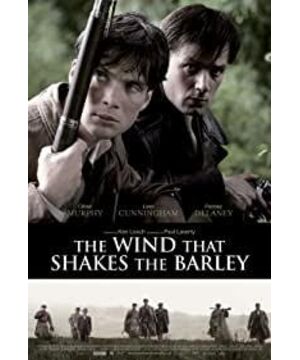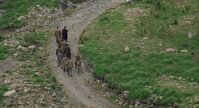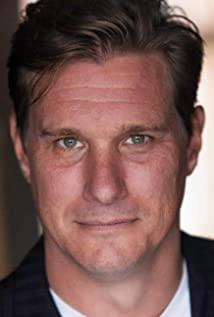In the beginning, the Republican Army was a bunch of ordinary people.
The first shot is a harmonious daily life, where everyone plays ball in a peaceful manner. The second shot is the murder of the tyrannical British army, followed by the beating at the train station. The image of the British army is undoubtedly the most caricature. In addition to adultery, they are burned, abused, and beaten. They are cruel imperialist aggressors.
Then there's revenge, counterattack, revenge, counterattack, and finally a deal. At this time, the main contradiction is the test of human nature.
Injury, revenge, pain, joy. They can kill unfamiliar warriors on the battlefield, and soldiers in uniform in a moment of madness. But they still hate killing people, they hate shooting traitors, whistleblowers, people they know. They also have a righteous heart.
Of course, the two are contradictory, one is a country of equality and freedom, and the other is a war of brotherhood. Is freedom based on violence, and is it possible to build a new world only by destroying the enemy with violence?
In the classical world, war was inevitable, and murder was inevitable. This is not a question of sympathy, but a question of rationality. Pain is a manifestation of human nature, and great warriors quickly forget their pain and throw themselves into new battles. Because they know that once they sink too much into pain, human nature will change, and kindness will be swallowed up by sadness and pain, and they will only become more cruel.
After the peace deal was signed, divisions began to emerge, civil unrest began, the tearing got worse, and the drama even more exciting. I used to be able to endure the British, but now it is even more cruel to my own people.
The Republican Army not only wants national independence, but also socialist reform. 3500 guns, no compromise, to make Ireland independent, not to let the British rule, not to let the bourgeoisie come to power. The British used this to threaten them, peace, or a renewed war. The mainstream wanted peace, so the troublemakers had to be subdued, and the civil war started.
The Republicans and the government went to war, for the same Ireland. Like the execution of the traitor at the time, the brothers went to war.
Many people here have seen the conflict between idealism and realism, the horror of the idea tearing apart family relationships, and the weakness of individuals under a strong organization. Politics is meant to transcend brotherhood, but this kind of tearing makes ordinary people and those Datongists uncomfortable. Here, the film focuses on the pain of brotherly cannibalism, rather than judgment, whether it is better to be realistic or idealistic. He doesn't care about this topic, because everyone has their own reasons.
The director is very clever, and does not make value judgments, but only exaggerates emotionally, exaggerating the pain of war, the horror of death, exaggerating the rebellion of brothers, and the break of family affection.
In this way, the director asks us to reflect on the need for war from a humanitarian and emotional point of view. However, from this point of view, it will only go astray.
Most wars are based on rational considerations, not emotions. Realism and idealism are the bigger problems behind, but movies are not suitable for discussing ideas, only for expressing emotions.
When the wind blows the wheat waves, the soldiers go to war, and no one knows where the target is.
View more about The Wind that Shakes the Barley reviews










